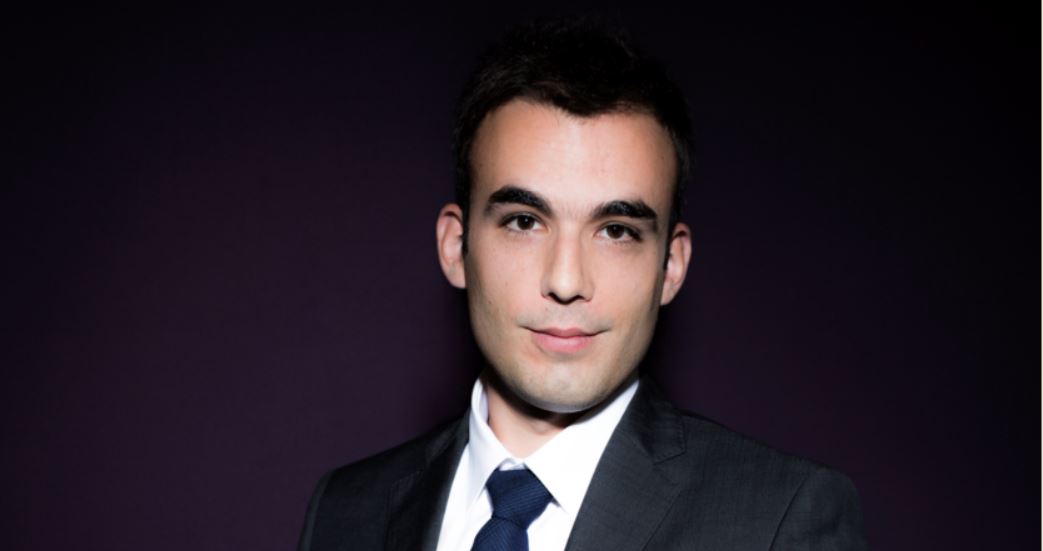Moscow Eyes the French Elections
With just a few weeks left until French voters head to the polls, far-right presidential candidate Marine Le Pen made her way to Moscow for a surprise meeting with Russian President Vladimir Putin.
As Putin stood last Friday beside his open admirer — Le Pen supports lifting Russian sanctions, says Crimea “has always been Russian,” and vows to pull France out of NATO and the European Union — he insisted the Kremlin does “not want to influence events in any way.”
Experts, however, say a Russian influence operation is well underway in France. The Kremlin is seemingly at work trying to influence the upcoming presidential election, employing some of the same elements the U.S. saw in 2016, in what the Intelligence Community assessed as a Putin-ordered cyber and influence campaign aimed at interfering in the election and boosting Donald Trump’s chances.
From French versions of Russian state-owned media outlets RT and Sputnik churning out fake or distorted content, to the activities of trolls and bots on social media, to a series of potentially Russian-linked cyberattacks against a leading candidate, Moscow has had its eye on attempting to influence the upcoming election as it pursues its aim of creating fissures in Europe, NATO, and the EU. The Cipher Brief expert John Sipher, who retired in 2014 after a 28-year career in the CIA’s National Clandestine Service, said he believes the Russians “have been focused on the French elections even longer than the recent U.S. presidential election.”
“I think Putin lucked out in his efforts to sow chaos in the U.S.,” Sipher said. “In France, however, Russia has deployed more resources and has likely had a more detailed and long-prepared plan.”
It is unclear how much is being directed by the Russians — there has been no intelligence assessment, as in the U.S. case — but experts note that the channels favored and the tactics employed, signal the government’s involvement. And on Wednesday, Senate Intelligence Committee Chairman Richard Burr said “it's safe, by everybody's judgment, that the Russians are actively involved in the French elections.”
The two-round vote, on April 23 and May 7, will likely see the Russian-favored Le Pen and Emmanuel Macron, an independent centrist running on a pro-Europe platform, face off in the second round. Right-wing candidate François Fillon, who also advocates for warmer ties with Russia and has called for lifting sanctions, has had his one-time frontrunner campaign largely derailed by a nepotism scandal.
Throughout the presidential campaign, the Russians can be expected to employ “cyber trolls, intelligence collection, propaganda, forgery, covert finance, and the full array of intelligence tools to influence the French election,” Sipher said.
Several of those disinformation campaign tactics have already been on display for voters, largely targeting Macron. Stories published on Russian state-owned media outlets — from outright “fake news” pieces to slightly distorted content with a pro-Russian, anti-EU or NATO stance — are subsequently shared by bots, trolls, and other social media actors to flood the online space. That “creates a bit of an echo chamber and gives the impression that a number of independent sources are corroborating the stories,” IHS Markit’s France analyst Kit Nicholl noted.
Macron’s campaign has accused Russia of being behind a spate of cyberattacks against the candidate’s website and email servers, a charge the Kremlin denied.
“We have seen this information campaign machinery grind into gear over the last couple of months, and there is clear intention on behalf of the Russian government to influence the campaign and support Marine Le Pen and her National Front,” Nicholl said.
Julien Nocetti, a research fellow at the Paris-based think tank French Institute of International Relations, said it is key to remember that to Moscow, an election season is “considered as a period of instability from which it has to make the most of.”
NSA Director Admiral Michael Rogers recently told the House Intelligence Committee that some of the same things that occurred in the U.S. — “in terms of disinformation, fake news, attempts to release of information to embarrass individuals” — are playing out “to some extent” in Europe. Rogers noted the U.S. is “working closely” with France and other European countries to “provide the insights that we have seen to try to assist them” with their own elections.
The French government has also weighed in, warning early this year that the elections were at risk from foreign cyberattacks. And in late February, French Foreign Minister Jean-Marc Ayrault said it was evident that Macron, the leading pro-European candidate, was being “targeted by cyberattacks.”
“This form of interference in French democratic life is unacceptable and I denounce it,” he said.
Meanwhile, Russian Defense Minister Sergey Shoygu announced on February 22 that the military has established an information operations force. This marks a public signal of the importance the Kremlin has placed on influence operations, said Alex Kokcharov, a principal analyst with IHS Markit Country Risk’s Europe and Commonwealth of Independent States team who follows Russia issues.
“This is the first Russian official acknowledgment of how seriously they take information, and it also probably indicates the degree of coordination among various agencies, whether run through the government or run through government-owned media outlets like Sputnik or Russia Today,” he said.
And the surprisingly effective influence operation in the U.S. “clearly gives additional enthusiasm to the Kremlin that they can use very little resources and completely non-military means to significantly alter the political situation in a country that is a potential adversary,” Kokcharov said.
Nicholl said that beyond Russian state-owned media outlets, he is also monitoring Russian-leaning think tanks, unauthenticated social media stories, and incidents of cyberattacks against candidates to assess efforts to influence the election.
“Looking into these factors and these indicators initially, towards the beginning of the year, we didn’t really see all that much, especially if you compare it to the influence campaign that was launched in the U.S.,” Nicholl said. “But since Macron has been surging in the polls and is now polling either first or second, we’re suddenly seeing a lot more of these efforts being made to influence the campaign.”
According to Alina Polyakova, deputy director of the Dinu Patriciu Eurasia Center and senior fellow for the Future Europe Initiative at the Atlantic Council, the use of various intermediaries — NGOs and think tanks, as well as other elements of power projection, such as the recently opened Kremlin-funded Russian Orthodox cathedral in the center of Paris, also speak to Putin’s interests in the nation.
“Those kinds of efforts that blur the line between cultural diplomacy or soft power and coercion — this ambiguity the Russians pursue in their efforts to influence — is also the key here,” she said.
The ties of Le Pen’s National Front party to Putin’s interests, meanwhile, extend not only to ideological and personal relationships, but to finances. Notably, the party received a €9 million loan from a Russian lender in 2014, “which you don’t get without signoff of the Kremlin,” Jeffrey Mankoff, deputy director and senior fellow with the CSIS Russia and Eurasia Program, noted.
With just a few weeks remaining in the French campaign — along with the crucial period between the first and second rounds — experts say they are expecting a possible final move from the Kremlin playbook.
Polyakova pointed out that along with one major similarity with the U.S. disinformation campaign — that one candidate, Macron, is being singled out as the target, as was Hillary Clinton — there is one significant difference. So far, there has not been a massive data theft and leak, as was the case in the U.S. election with the Clinton campaign emails.
“Certainly very personal, untrue allegations against Macron have been circulated and picked up by regular media,” she said. Macron, who is married to his former high school teacher, denied a rumor that he is gay in the wake of a Sputnik report citing a French MP from Fillon’s party saying Macron was backed by a “gay lobby.”
Macron, a relative unknown on France’s political scene, is a “challenge for the disinformation machine,” Polyakova noted, unlike a politician with a long history such as Clinton. Still, several observers say they are closely watching in the next few weeks for a potential dump of information, particularly if the likely scenario of a Le Pen-Macron runoff comes to fruition.
“If I was Macron’s campaign, I would be preparing for some kind of dump of data. There’s a pattern in a huge disinformation campaign, so I hope they’re preparing for the possibility and the likelihood there is some sort of breach and dump,” Polyakova said. “I’m watching it very apprehensively. It’s a very volatile situation.”
Nicholl agreed, noting that WikiLeaks’ Julian Assange claimed to a Russian newspaper in February that he had “interesting information” on Macron that had come out from the leaked Clinton campaign emails.
“Obviously we don’t have anything to backup whether this was a true statement or not, but whether they are actually sitting on information of that sort and waiting to leak it closer to the election, does remain a possibility,” he said. “Macron came slightly out of nowhere, he doesn’t have the strong established party backing him, so despite the fact that he’s doing well, he has a relatively weak political support base. So seriously damning stories on him close to the election could make an impact.”
Read the article on the website of The Cipher Brief

Media:
Share







